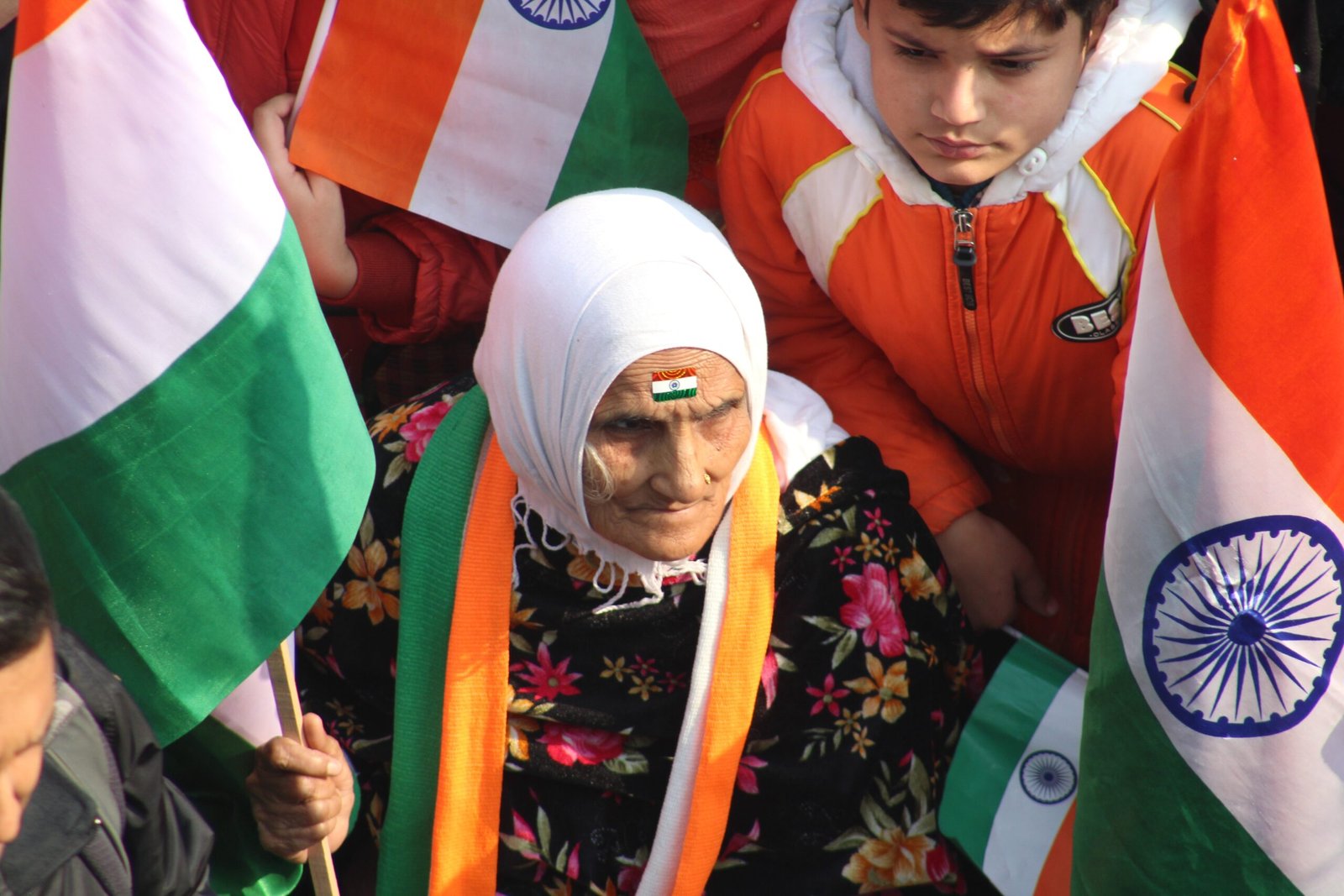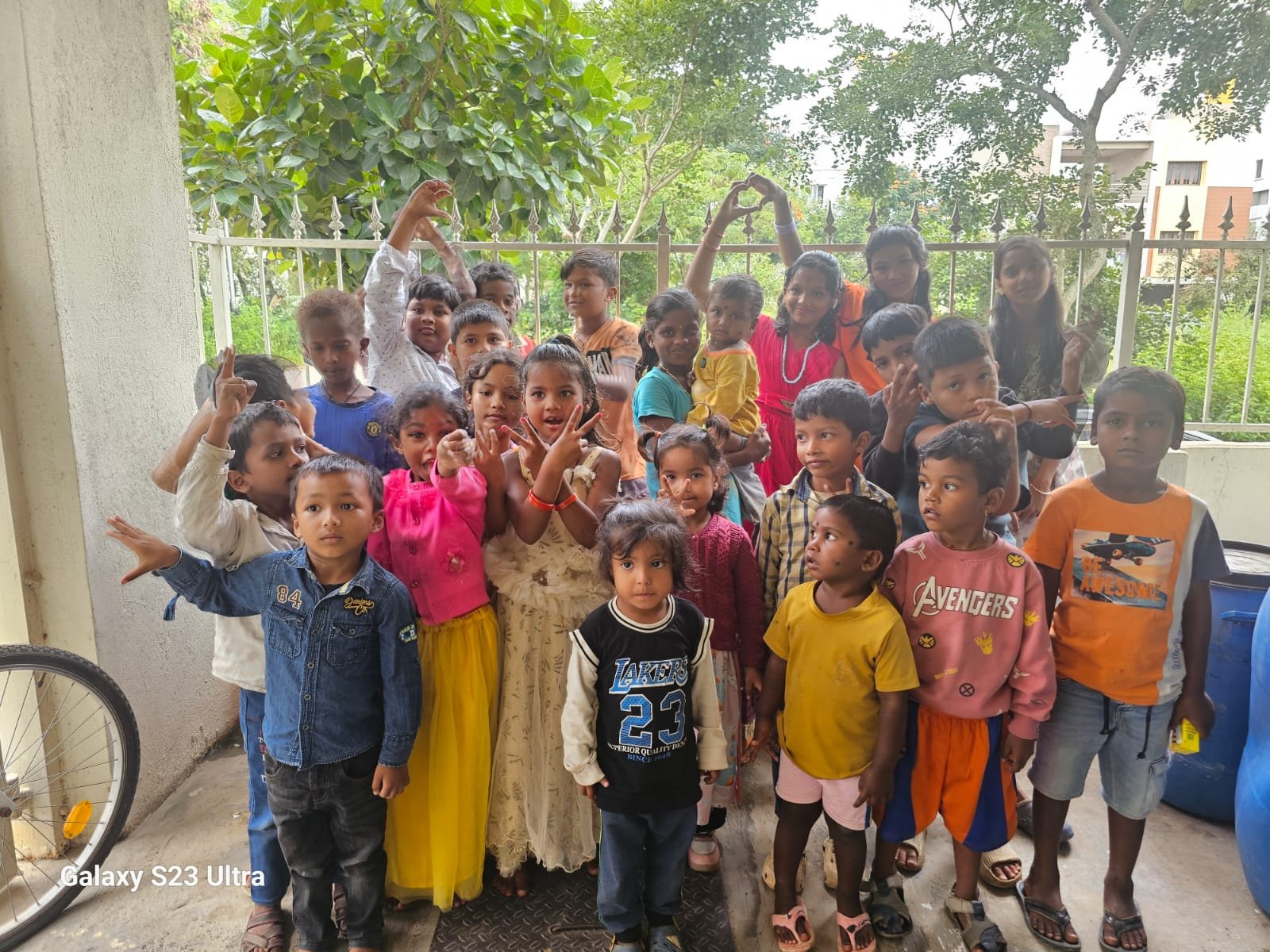There once lived a girl—no, a woman—or rather, a mother.
She had once been vibrant, extroverted, and fiercely professional. But life had taken a different turn. Now, she was a full-time homemaker, consumed by the needs of her family: her children, her husband, and her in-laws.
Her ambition had faded. Silence had taken its place. She barely spoke to anyone anymore. Gone were the days of self-care, spontaneous outings, or meaningful friendships. Marriage had changed her life completely—a 360-degree shift she never saw coming.
Daily arguments with her mother-in-law, a difficult and overly controlling woman, had eroded her peace of mind. The relationship with her husband, once filled with love and endless conversations, now felt more like an arrangement. He buried himself in work. She poured herself into raising the kids. Priorities had shifted. Love had quietly moved to the background.

One day, after dropping the children off at their art school, she decided to steal a rare moment for herself. She stepped into a nearby café, craving something simple—a hot cup of coffee. It had been ages since she’d had one without interruption.
As she sat there, cupping the warmth in her hands, she spoke on the phone. Her voice was calm, but heavy with emotion.
“Why should I invest more?” she said softly. “I’ve already given so much… and still, I see no return. It’s always a loss.”

As she hung up—frustrated, tired, and on the edge of tears—a man in his thirties at the next table looked over and smiled.
“I used to feel the same way,” he said casually. “Until a few months ago. The trick is to invest in portions—large caps, mid caps, small caps. You might be making a mistake going all in.”
She stared at him, stunned.
Seriously? she thought. This was her one peaceful moment—hijacked first by a draining phone call, and now by a complete stranger offering unsolicited investment advice.
Her face flushed—not with embarrassment, but with quiet fury.
“I wasn’t talking about stocks,” she replied sharply. “But thank you for the… insight.”

His smile faded as realization dawned. She stood up, dropped her half-finished coffee in the bin, and walked out—her heels clicking with that unmistakable rhythm of long-suppressed anger.
But as she drove home, the blur of traffic outside her window, her anger began to dissolve.
She replayed the scene in her mind—the stranger’s awkward attempt to connect. He hadn’t judged, hadn’t criticized. He hadn’t raised his voice or pointed fingers. He had simply tried—clumsily—to help. Maybe it wasn’t what she needed, but it had come from a place of goodwill.
For a moment, she felt something she hadn’t in a long time: acknowledged.

In a world quick to blame, quick to judge, and slow to understand, this stranger had done something different. He’d shared his own mistake in hopes of helping. And that, she realized, was rare.
After seven years of marriage, Shruti took a bold step—one that felt like reclaiming a long-lost part of herself. She began writing a book, a deeply researched and compassionately written case study on LGBTQIA+ lives. It was a subject close to her heart—born of empathy, quiet observation, and a desire to amplify voices that were too often ignored.
But when the manuscript was complete, reality hit. Many established writers refused to endorse or review her work. Some were afraid of backlash. Others just didn’t care.
Just as doubt began to creep in, her cousin Priya arranged a meeting with a promising young author—new, bold, unafraid. His name was Shivin.
When Shruti walked into the café and saw him, she froze.
It was him—the stranger from that one morning months ago. The man with the misplaced stock advice.
Their eyes met, and something shifted. Not sparks or drama—just an easy, surprising comfort. A recognition deeper than logic.
“It’s you,” he said, smiling. “I knew we’d cross paths again.”
She smiled back—genuinely this time. The anger was long gone, replaced by a strange familiarity.
They sat down. Shruti shared her story, her doubts, and her hopes for the book.
“I don’t know how many people will read it,” she said quietly. “But even if one person does—just one—and it helps them see life a little differently… it’ll be worth it.”
Shivin nodded. “That’s all it takes—one person. I’ll be there. I’ll bring friends. I’ll support you however I can. Your voice matters, Shruti. And now—it’s being heard.”
The book launch event exceeded every expectation.
The hall, once feared to be half-empty, was filled. Students, activists, readers, and strangers gathered in quiet anticipation. The energy in the room was warm, alive.
Shruti stood on stage, her hands trembling slightly. But when she spotted Shivin near the back—steady, smiling—her nerves faded.
She spoke with clarity, confidence, and passion. She talked about stories that needed telling, about representation, and about empathy. When the applause came, it wasn’t just for her book—it was for her courage.
And in that moment, she realized she was no longer invisible.What made the night unforgettable was Shivin. He had stood by her—not advising, not correcting—just being there. No judgment. No expectations. Only quiet support.

For Shruti, that was rare. That was powerful. That was enough.She was no longer just surviving. She was living.
Over time, Shruti and Shivin became close friends.
They began sharing life’s messiness with each other—with honesty and laughter. From absurd acid reflux after ten cups of tea to rants about in-laws, workplace politics, and midnight existential crises.
They spoke freely—about dreams, failures, frustrations, and fears.
In each other, they found not just companionship, but understanding.
But not everyone understood.
Priya, once a source of support, felt something shift. She misread their closeness. And in a moment of jealousy—or fear—she confided in Shruti’s husband, suggesting that Shruti might one day leave everything behind for Shivin.
When Shruti heard what had been said, she was shattered.
What had been pure, honest, and rare was now stained by suspicion. Though nothing inappropriate had ever happened, the weight of guilt as a mother—and the fear of losing her child—made her do the unthinkable.
She cut all ties with Shivin.
A year passed in silence.
Shruti went through the motions. But something inside her dimmed. She felt lonely. Hollow. The one person who had stood by her, without asking for anything in return, had been blamed for things he never did.
She missed him every day.
Sleep became difficult. Joy became rare. And with each passing day, the guilt grew heavier.
Then one afternoon, at a book fair, she saw him again.
She didn’t hesitate. “Shivin,” she called.
He turned. Their eyes met. The smile was still there—gentle, knowing, forgiving.
“Would you like to have coffee with me?” she asked.
“I’d like that,” he said.
Over coffee, the silence of a year unraveled. Shruti cried. She apologized—for the things she said, and the things she never got to explain. Shivin simply listened, his presence calm as ever.
“I had people around this year,” he said quietly. “But no one like you. No one I could really talk to.”
Not once did he blame her. And in his quiet forgiveness, Shruti felt something inside her begin to heal.
Over time, as they eased back into each other’s lives, Shruti began to understand Shivin more deeply than ever before. She realized how difficult he could be—how complex, layered, and unapologetically honest. She often thought how hard it must be for people who didn’t understand him, who didn’t see past his walls and misread his depth as arrogance.
“I wonder,” she once said to him with a half-smile, “what would’ve happened if we had met fifteen years ago?”
Shivin just shrugged gently and said, “God always plans the best. Back then, we might’ve missed each other entirely. It would’ve been just another story. We weren’t ready for this.”
And he was right. Back then, they might’ve mistaken this rare connection for something fleeting. They would have failed to recognize its value. Now, after life had taught them both what truly mattered, they saw each other clearly.
Shruti smiled through quiet tears. She realized he wasn’t just her biggest supporter—he was her best friend, her philosopher, her critic, and her guide. He challenged her, grounded her, believed in her. Not despite her flaws, but with them.
The bond Shruti and Shivin shared defied labels.

They loved being in each other’s company—effortlessly, honestly.
Their connection was deeply emotional, profoundly intellectual, and yet completely non-physical. They didn’t need touch to feel close. They didn’t need declarations or definitions.
They were each other’s mirror and refuge—a sacred space where they could be fully themselves.
In a world that struggles to understand such connections, theirs remained quietly powerful—pure, rare, and deeply human.
ANONYMOUS















2 Responses
This is beautiful ❤️❤️❤️
Your writing is so captivating. The way you weave words together is nothing short of enchanting. Bravo!